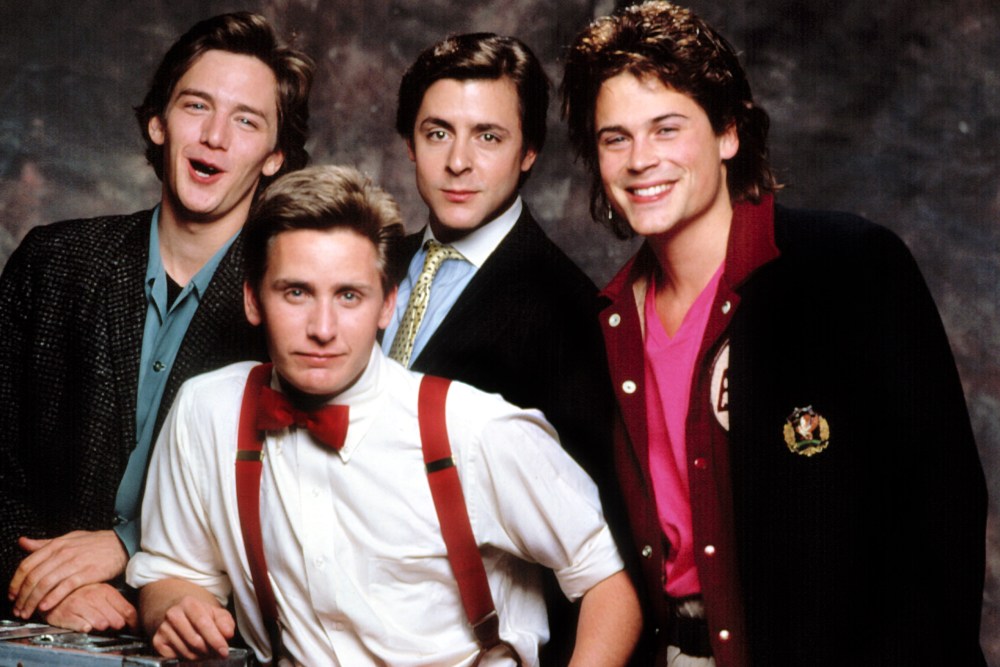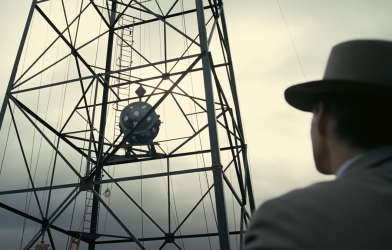“St. Elmo’s Fire,” “The Breakfast Club” and “Pretty in Pink” are industry-defining films of the ‘80s, marking a shift to films for young people and about young people. But they also have another distinction — “Brat Pack films.”
Andrew McCarthy, an actor and member of the Brat Pack, revisits the media buzz that surrounded the young group of talented actors who ruled the film industry in his documentary simply titled “Brats.” In it, he interviews many of the Brat Pack actors, along with producers and even the journalist who wrote the original Brat Pack article. David Blum wrote the article after an interview with Emilio Estevez, an article that would reverberate throughout Hollywood.
Lauren Shuler Donner, an extremely successful producer of many films, including “St. Elmo’s Fire,” talks to McCarthy in the documentary about her view of the Brat Pack.
“Yeah, [the article] was a good thing, it distinguished us, it took us out of a whole year of movies, it put us in the forefront. You have to realize, when people saw St. Elmo’s, young people, they wanted to be part of the St. Elmo’s Brat Pack,” Shuler Donner said. “Here’s what I understood, I understood that the guy who wrote it, in all difference, was jealous of Emilio and all you guys. He termed the Brat Pack as a bad term and I thought it was fabulous. I thought it was aren’t these guys lucky and aren’t they talented, they made their luck.”
Most of the Brat Pack did not see the article the same way Shuler Donner does. The members of the Brat Pack fell into complete disarray after the release of the article. They believed they lost control of their own image, which was extremely damaging for their career. McCarthy mentions that he felt he had been thrown into a club he didn’t apply for, and that club didn’t have a very good reputation.
The thing is, this group of young actors existed in a time when young talent was the most important, and they were the most sought-after actors. So, how did one article completely derail their bright, burgeoning careers? Well, I’m not sure if it was the article’s fault. In fact, after watching the documentary, I think the real cause of their downfall was their own response to the article, which many of the people and actors interviewed realized. One person who didn’t seem to fully grasp this was McCarthy, the creator of the documentary.
Demi Moore, an extremely accomplished actress who was a member of the Brat Pack, talked about the group’s response to the article and their new label.
“Why did we take it as an offense? Why did we take it as something bad? It’s because we were young,” Moore said. “It definitely really irritated me, I felt a sense of it being unjust, I felt it didn’t represent us, and I felt it was a really limited perspective. But I don’t know if I took it as personal, over time, as you maybe did. But it was like there was a belief that you were holding underneath that you made that mean something about you that created a limitation.”
McCarthy loved this last line. He felt it summed up his whole experience, but every other person he interviewed said basically the same thing. This is what really bothered me about the documentary. McCarthy seems to hear the same things over and over again. He reacts positively when he is pitied and he acts like a confused child in every interview. He is almost never challenged in his reflections of the past. During the one time he is challenged, in the interview with Blum, he whines and complains the whole time, even finishing by saying, “Couldn’t you have been a little nicer”?
Blum, the author of the infamous article, discusses with McCarthy the results of what the article did to the group of actors.
“To me, when I look back on it, I feel more redeemed than ever by the fact that I was not wrong, you were a bunch of talented and interesting people to write about at a point when Hollywood had finally decided young adults should be in movies,” Blum said.
McCarthy immediately strikes back, reminding Blum that he probably didn’t write it with any affection towards them. Blum responds, “You were all adults. I would not have written that story about minors. Well, there’s trade-offs to being a celebrity.”
I think Blum is right. McCarthy benefited from all the positives of being a celebrity, but when he felt any sort of criticism, he cried and whined and gave up. And it seems like he’s still whining about it in the documentary and blaming his career, which had a lot more potential than how it went, on other people.
Right now, I am in Los Angeles with Carl Kurlander, author of “St. Elmo’s Fire,” with the Pitt in LA program. I’m learning how tough of an industry this is and how important persistence and thick skin are. Kurlander originally wanted his film to be about the struggles of post-college life and how terrible it is to be a young adult. But you can’t just sit on the floor and wait to freeze to death like Demi Moore’s character in “St. Elmo’s Fire.” McCarthy let himself freeze, and this is so easily seen in his own documentary.
The only members of the Brat Pack who the article held any truth about were the ones who, in the end, let the article hold them back. Not because the article ruined their career, but because they believed everything that the article was saying about them. And maybe this is a warning for young people in the industry, or anywhere that fame puts them in the spotlight, of how easy it is to let other people define you. But with belief in yourself, like Brat Packers Rob Lowe and Moore had, all you have to do is let the words slide off your back.









